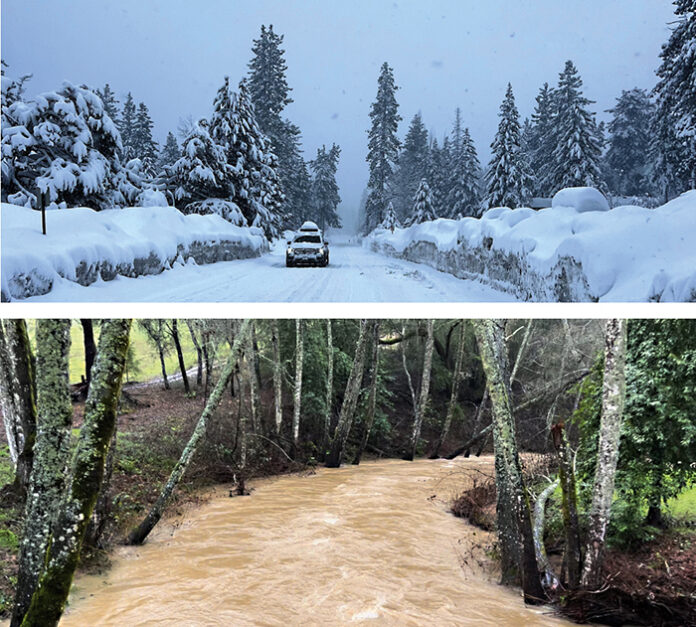
Rainstorms in Sonoma usually mean snowstorms in Tahoe. As of Jan. 10, snowpack in the Sierra is 214% of normal, according to the California Department of Water Resources. Ski resorts around Tahoe are heavenly this year—double pun intended.
Whiteout conditions. Avalanche control in passes and resorts. Highways closed. Motorists stranded over Martin Luther King’s holiday. So why the song, “Let It Snow, Let It Snow, Let It Snow”?
Isn’t it an interesting contrast, singing “Rain Rain Go Away” and then “Let It Snow, Let It Snow, Let it Snow” for its cold counterpart?
It turns out that “Let It Snow” was written during a hot July in Los Angeles, when lyricist Sammy Cahn and composer Jule Styne decided to think cool thoughts rather than escape to the beach. Since the hottest days in Los Angeles, July 1945, were 80 and 83 degrees, the heat didn’t seem to interfere with creativity, and this delightful winter song resulted. I’m thinking a dandy winter song is better inspired by summer’s nostalgia for winter than the reality of shoveling mounds of snow.
Fun facts: Sammy Cahn was born in New York City in 1913. He was born Samuel Cohen, of Jewish immigrants from Poland. He later changed the spelling of his last name to Kahn to avoid confusion with an MGM actor, and then Cahn to avoid confusion with a lyricist, Gus Kahn.
Today, there is no confusing who Sammy Cahn was; he was nominated for 30 Oscars, won four, and the “Sammy” is an award given to outstanding songwriters. His signature thrice repeated phrase is known as a vaudeville ending.
Jule Styne (Julius Kerwin Stein) was born in London to Jewish immigrants from Ukraine. Moving to Chicago, he was recognized as a piano prodigy and played with the Chicago and Detroit symphony orchestras before age 10.
Styne attended Chicago Musical College and over the course of his career published 1,500 compositions. His talents and compositions are better recognized in titles of Broadway shows: Gypsy, Funny Girl, Three Coins in the Fountain, Gentlemen Prefer Blondes, Peter Pan and Barbra Streisand’s famous song, “People.”








